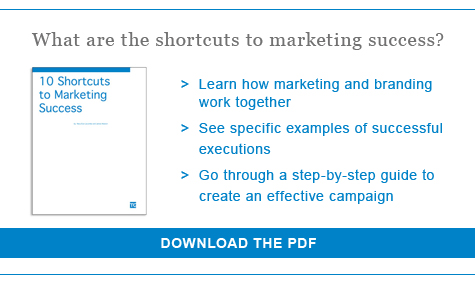Who is the ideal client?
The ideal client for us is someone who is both pragmatic and idealistic.
We want to make the world better, and for us the way we can do that most effectively is through our clients. So it is important that we choose our clients well.
The following are the ten questions we currently ask ourselves when we consider if a potential client is likely to be an ideal client for us. These are our questions. Yours will be different, but this list should provide some ideas.
Working relationships are always personal.
Note that these questions are mostly personal characteristics and NOT things like “How big is your marketing budget?” Our clients are mostly organizations, of course, but we are looking at them through the lens of the people with whom we work. This is a subtle reminder that working relationships are always personal.
1. Do you have a great product or service?
This is critical. To quote Bill Bernbach: “A great ad campaign will make a bad product fail faster.” We are not in the business of demand creation.
2. Do you care about the final results, and do you see the big picture?
This makes our job easier. If you can think strategically, this will expose the value we bring to the table. It also means you are ready to engage with our process, which is strategic first and tactical after.
3. Do you stand up for what you believe?
Do you have moral fiber? Having this helps everyone persistently do the right thing. We want you to do the right thing.
4. Are you passionate about what you do and what your organization brings to the world?
This inspires us. We don’t want to be the only passionate ones in the room.
5. Are you worried first about the success of your organization, and not just your personal success?
This means less ego and a greater ability to take risks. We will likely ask you to take risks. You will benefit, but this should come from a desire to see the success of the organization and how you helped facilitate its vision.
6. Can you trust us?
Mutual trust clears the way for great work. Rarely is there such a thing as tentative greatness.
7. Do you have good taste and good judgment?
This is a very subjective I know, and it is hard to ascertain. Why is this important? Well, so you will appreciate our work and be excited by it. We know we do good work, and we want to be appreciated for it.
The opposite of this trait is a combination of bad taste (subjective) and a priori assertions that the client is always right. This yields the possibility of a taste battle in which we will have to capitulate. After all, we are not in the business of imposing our will. But this outcome makes the client happy (perhaps), and us? Not so much. It’s better if everyone is happy.
8. Are you willing to arrive at the results using a well-defined process?
The process allows us to do our work. It is important not to short circuit that process simply for lack of patience. For example, if we are going to unearth a trim tab as part of the process, it will likely not be at our first meeting.
9. Can you suppress those who are petty or political?
Pettiness contributes to everyone’s wasting time and energy on the wrong things. If not everyone involved is motivated by the vision and success of the project, this will simply make the task unnecessarily harder. Hard is par for the course, but hard because someone is scheming for the project to fail? Who has time for that? We don’t.
10. Are you motivated by the idea of making the world better?
We strive to have clients align with our own vision. It is, in fact, central to our vision that our clients are doing good in the world. It is in this way that we are able to do the same. In the best case, therefore, our visions fully align.
So an honest to goodness ideal client would fit all of these criteria. Obviously not every client is going to be an ideal client. What’s important is the process of getting closer to the ideal and the process of finding clients that bring us closer to our vision. Our clients—the company we keep—are part of the expression of our vision.
We are happy with all our near-ideal clients. These questions though help us to see when a prospect really should NOT become a client. They bolster our all important capacity to say no.
Click below to sign up for our mailing list and get access to our library of downloadable guides, including the following:
Photo by Elaina Heaton




Ask for help.
We are kind, thorough and ready when you are. You just need to ask.